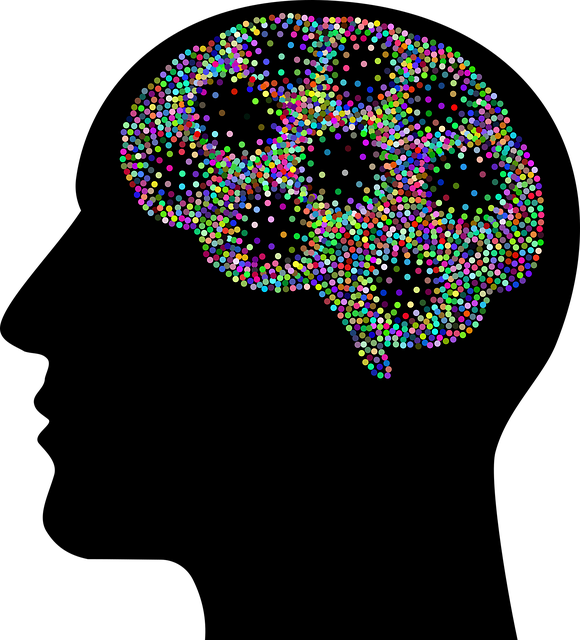Englewood Eating Disorders Therapy offers a unique, holistic approach to stress management, addressing its diverse causes and impacts on mental and physical health. By combining Mental Health Awareness, empathy-building strategies, and evidence-based practices, they educate individuals on self-awareness, emotional intelligence, and effective coping mechanisms. This comprehensive program emphasizes the mind-body connection, incorporates cultural sensitivity, and promotes tailored support for stress reduction, resilience building, and overall well-being, making Englewood a leading resource for transformative stress management.
Stress management is a vital skill for maintaining optimal well-being, and Englewood Eating Disorders Therapy (EEDT) offers valuable insights. This comprehensive guide explores the profound impact of stress on our lives and introduces effective strategies to navigate its challenges. From understanding the root causes to implementing daily practices, we delve into techniques that foster resilience. Learn how EEDT incorporates these methods to empower individuals, providing a roadmap for managing stress sustainably. Discover practical tools to transform your relationship with stress and enhance your overall mental health.
- Understanding Stress and Its Impact on Well-being
- The Role of Englewood Eating Disorders Therapy in Teaching Stress Management
- Effective Techniques for Managing Stress Daily
- Implementing and Sustaining Healthy Stress Coping Strategies
Understanding Stress and Its Impact on Well-being

Stress is a ubiquitous aspect of modern life, arising from various sources like work pressure, financial worries, and personal relationships. While acute stress can be motivating, chronic stress can lead to significant negative impacts on both physical and mental health. It’s akin to a constant state of alertness, where the body’s natural balance is disrupted, potentially causing issues such as anxiety, depression, and even physiological ailments. This is where effective stress management techniques become essential tools for enhancing well-being.
At Englewood Eating Disorders Therapy, we recognize that stress isn’t just an individual experience; it’s influenced by cultural and social factors. That’s why our approach to teaching stress management incorporates Mental Health Awareness and Empathy Building Strategies, ensuring a nuanced understanding of the issue. By considering Cultural Sensitivity in Mental Healthcare Practice, we aim to provide tailored support, as stress can manifest differently across diverse communities, enriching our ability to offer effective relief and fostering a more inclusive environment.
The Role of Englewood Eating Disorders Therapy in Teaching Stress Management

Englewood Eating Disorders Therapy plays a pivotal role in teaching stress management by addressing the intricate link between mental health and physical well-being. Their specialized programs, tailored to individual needs, go beyond mere treatment; they empower individuals with essential coping mechanisms. Through a holistic approach, Englewood offers self-awareness exercises that encourage reflection and understanding of personal stress triggers. This introspection is a cornerstone in the design of their mental wellness education programs, fostering an environment where participants learn to identify and manage stress effectively.
By incorporating evidence-based practices, Englewood Eating Disorders Therapy helps clients develop resilient strategies to cope with daily stressors. These techniques, often integrated into Mental Health Education Programs, focus on building emotional intelligence and enhancing overall mental health. The result is individuals who can navigate life’s challenges with a newfound sense of calm and control, reducing the impact of stress-related issues.
Effective Techniques for Managing Stress Daily

Managing stress daily is a crucial aspect of maintaining mental and physical well-being, especially in today’s fast-paced world. One effective technique is mindfulness meditation, which encourages individuals to focus on the present moment, thereby reducing anxiety about the past or future. Regular practice can help lower stress levels and improve overall mood. Incorporating simple breathing exercises into daily routines can also serve as a powerful tool for immediate stress relief.
Englewood Eating Disorders Therapy emphasizes holistic approaches to well-being, including physical activity and healthy eating habits. Engaging in regular exercise releases endorphins, which act as natural stress fighters. Additionally, proper nutrition supports emotional healing processes, making it an integral part of burnout prevention strategies for healthcare providers who often face high-stress situations. Crisis intervention guidance can also be tailored to include dietary and activity modifications to mitigate stress and promote resilience.
Implementing and Sustaining Healthy Stress Coping Strategies

Implementing and sustaining healthy stress coping strategies is an essential aspect of holistic well-being. At Englewood Eating Disorders Therapy, we emphasize the integration of Mind Over Matter principles to empower individuals in managing their stress effectively. This involves teaching practical techniques such as mindfulness meditation, deep breathing exercises, and cognitive reframing, which have been proven to reduce stress levels and improve mental resilience. By incorporating these strategies into daily routines, our clients develop a more positive mindset, fostering an environment conducive to better emotional regulation.
The success of these initiatives relies on cultural sensitivity in mental healthcare practice. Recognizing the impact of diverse cultural backgrounds on stress perception and coping mechanisms, we tailor our approach accordingly. This ensures that every individual receives personalized support, respecting their unique experiences and perspectives. Through ongoing education and reflection, clients are encouraged to adapt these strategies to align with their personal values and cultural identities, making them more sustainable in the long term.
Englewood Eating Disorders Therapy plays a vital role in equipping individuals with effective stress management techniques. By understanding the impact of stress on overall well-being, this therapy offers personalized strategies to cope with daily stressors. Through a combination of education and practical tools, it empowers people to implement and sustain healthy habits, fostering resilience and improved mental health. These evidence-based methods are essential for navigating life’s challenges, ensuring individuals can thrive in a bustling world.














